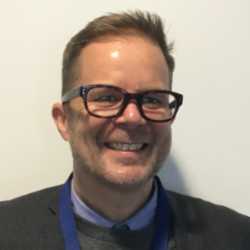Pioneering Approach to Tackling Inequalities
Mark's work goes beyond traditional disciplinary boundaries, encompassing health service research, clinical practice, community engagement, and advocacy. His approach looks to tackle exclusion and ensure that vulnerable communities have access to the resources and support they need for optimal health and wellbeing. His work also extends well beyond academic research, through active engagement in shaping public policy and discourse and his advocacy for community-driven solutions.
"The impact of my work is twofold," explains Mark. "Firstly, the health and wellbeing improvements we see at individual and community level means we are contributing to closing the gap between the most and least well-off. Secondly, the public’s direct contribution to our research and decision-making process means that the outcomes of our research are useable in local contexts."
This is a key focus of the transformative work taking place the Lincoln Institute for Rural and Coastal Health (LIRCH). With nearly £11 million in funding, LIRCH aims to tackle place-based health inequities. “Coastal and rural communities can be disproportionately impacted by economic problems, weather-related disasters, and climate change in addition to longstanding health challenges and poorer access to services," says Mark, who is the Institute's Director. "Linking the geospatial, environment, and weather influences with traditional population health sciences will develop a more sophisticated understanding of the broader determinants of health and wellbeing.”

/prod01/university-of-lincoln-cdn-pxl/media/responsive2017/research/newresearch/Mark,Gussy,Banner,1600X600.jpg )


